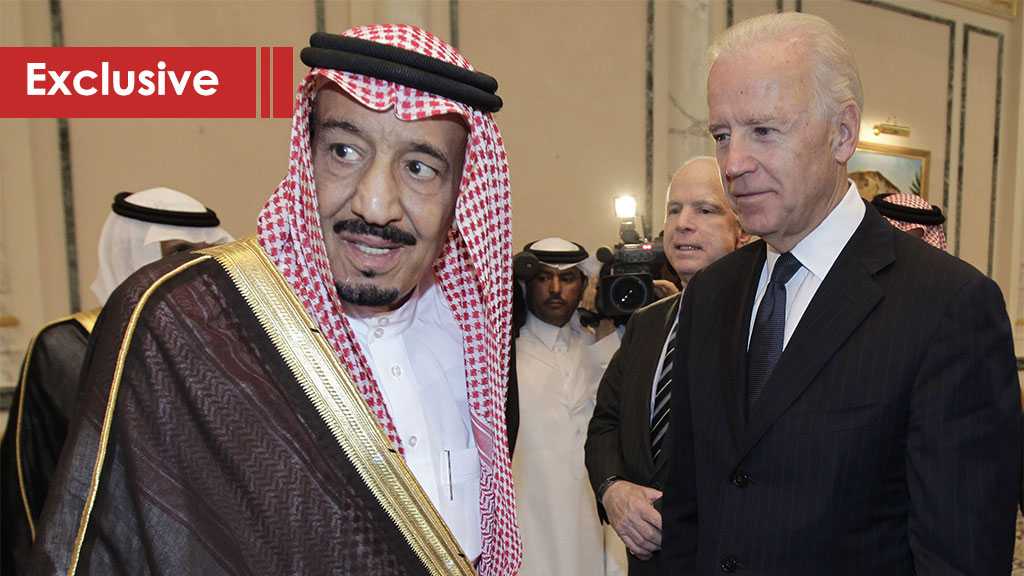
The Khashoggi Bomb: What Does Biden Want from Riyadh & What Are MBS’s Options?

By Ali Abadi
The release of the US intelligence community’s declassified report on the murder of Saudi journalist Jamal Khashoggi is more than two years overdue. Khashoggi was killed inside the Saudi consulate in Istanbul in October 2018.
The sanctions announced by the administration of US President Joe Biden did not include specific measures against Saudi Arabia’s Crown Prince Mohammad bin Salman. This despite the fact that the report pins the murder on the royal. The report states that the hit team could have only gotten its marching orders from the Crown Prince, given the latter's tight grip on the security apparatus.
The CIA report did not introduce any new information. But the intelligence assessment about what transpired and who is responsible are important. The substance of the report was toned down following several weeks of consultations between Biden and his team. The aim was to avoid pushing their Saudi ally into a corner and keeping an outlet for him to modify his behavior in line with the policies of the new US government.
The report asks correlative questions
Do the steps taken by the US administration regarding the assassination of Khashoggi indicate a turning point in the relations between the two states? Are they merely scoring political points in restoring American soft power by pretending to protect human rights? Or are these steps the end of the tolerance phase practiced by former US President Donald Trump and do they mark the start of a new relationship based on new-old foundations?
American review
First, let's review the steps that have been taken to date by the Biden administration vis-à-vis the Kingdom of Saudi Arabia:
- Halting the supply of offensive weapons to Saudi Arabia and the UAE and pushing for an exit from the US-sponsored Saudi predicament in Yemen
- Calling for the release of human rights activists in the Kingdom.
- Stopping US communication with the Saudi Crown Prince and limiting presidential communication with King Salman
- Announcing gradual steps, even if currently conditional, to return to the nuclear agreement with Iran
- Perhaps most importantly, the declaration of a break from the Trump era in several areas, including those related to dealing with Saudi Arabia leading up to the release of the Khashoggi report
It is clear that the new administration in Washington doesn’t enjoy a harmonious relationship with the current ruling team in Saudi Arabia, specifically with Mohammed bin Salman, who seized power by force, imprisoned his opponents [some of whom are in cahoots with officials in the deep state in America] or placed them under house arrest. Bin Salman is attempting to buy the support of the US government for all his reckless actions, while harming American soft power, especially with the open wound in Yemen.
There is a very important point that may be the main motive behind the new way America is dealing with Riyadh. Circles of the American elite, among the Democrats in general and even some Republicans, feel indignant and suspicious regarding the very special relationship between the Saudi Crown Prince and former US President Donald Trump and his entourage. The Democrats, in particular, want to break this relationship and expose it retroactively. There is a current within the Democratic Party that wants to go further than Biden in dealing with Riyadh. However, the US President preferred a traditional approach that separates the relationship with the Saudi Crown Prince from the one with the entire Saudi government, despite the fact that the two are indistinguishable. Even the Saudi King cannot break away from the authority of his favorite son, and this is another story.
How will Saudi Arabia respond?
Saudi Arabia’s official version about the trial of Khashoggi's killers is irrelevant. The outcome of the trial was always a foregone conclusion, and it ended in limiting the charges to a number of people and removing the accusation not only from the Crown Prince but from his two closest associates, Saud Al-Qahtani and Ahmed Al-Asiri.
The death penalty against the killers was also abolished, while the family of the victim was compelled to waive their right to retribution in exchange for financial compensation [a typical Saudi procedure in such cases]. Of course, we are not interested now in recovering the contradictions of the official Saudi narrative, which involved disjointed narratives since the assassination saga began to unfold.
However, each of the above steps is sufficient to annoy the Saudis, who are very disappointed with the end of the Trump era, in which the Saudi Crown Prince invested hundreds of billions of dollars in order to cover his impulsive policies. Trump left, and the Saudi money went to the US treasury and American companies. The Kingdom of Saudi Arabia is once again in the dark about the American agenda that represents an extension of the Obama era. Faced with the American moment of truth, the Saudi government will have to deprecate this incomplete revelation through:
- Downplaying the importance of the US measures and the talk that the Saudi judiciary has spoken in the case
- Stirring up patriotism among the Saudis to give renewed legitimacy to the Crown Prince, whose image was tarnished by this crime
- Betting on time to overcome this saga
- Accelerating the relationship with "Israel" in order to use its influence in Washington to moderate the dealings with the Saudi Crown Prince. In this sense, normalization becomes a price [currently hidden] for legitimizing Bin Salman's status in Washington
- Hinting to the Americans that Riyadh is looking for alternatives to American weapons with China and Russia, for example, in order to push Washington to reduce its criticism of the Saudi Crown Prince
Most of what the Biden administration wants is for Riyadh to return to the ranks of the passenger rather than Saudi Arabia leading the United States to where it wants in the region, especially after the Saudi Crown Prince proved unprecedented recklessness in managing internal affairs and a lack of efficiency in managing regional challenges.
The Biden administration also wants to preempt any Saudi or non-Saudi objection to returning to the nuclear agreement with Iran and to dispel any attempt by Riyadh and others to enlarge their role in a way that disturbs the new government managing this file from the perspective of various US priorities. We should pause here at an interesting point, which is that the Biden administration is adopting a triple containment strategy for objections to the nuclear deal that was reached in the era of the Democrats in 2015.
This strategy includes, in addition to Saudi Arabia, the UAE, and "Israel". In addition to stopping the US presidential communication with Bin Salman and halting offensive weapons supplies to Riyadh, Washington has also stopped arms deals with the UAE and has allowed, in a carefully studied time frame, to publish satellite images of construction operations at the “Israeli” Dimona reactor, at a time when Netanyahu waited weeks to receive a call from Biden.
In conclusion, the new US administration aims to get rid of Trump's legacy on several levels and reset US-Saudi relations to a purely American rhythm, but the desired justice stopped with Mohammed Bin Salman.
Let's remember:
- Jamal Khashoggi's body was never found, and the Saudi side refuses to reveal its fate.
- We are facing a declassified US report, which means that the US administration preferred to keep secret facts under wraps in order to preserve relations with Saudi Arabia and maintain the loyalty of Riyadh.
- We are facing scanty measures against those involved in the crime. Not granting them entry visas to the United States is the weakest measure in the huge US sanctions arsenal, and Washington was satisfied with the weaker punishment.
- The bitter cup was removed from the Crown Prince, although the moral message was received.
- It is important to note the impact of this position on the way European countries and the international community view the Saudi Crown Prince, who will remain in his father’s shadow as long as the latter is alive.
The question remains: What is Mohammed Bin Salman’s fate after the current king? Will his past be overlooked and his position on the altar of American strategic interests be normalized, or is Washington thinking about reopening the path of the caliphate in the Kingdom of Saudi Arabia, which is currently unavailable after Bin Salman smashed all possible alternatives?



